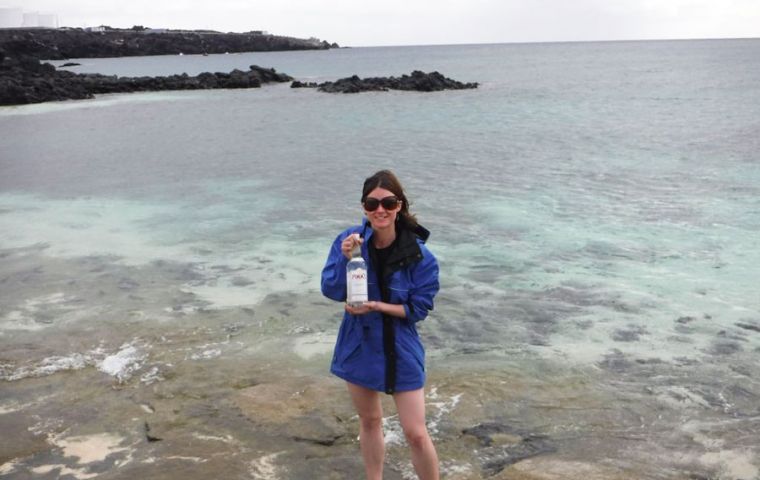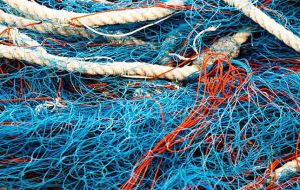MercoPress. South Atlantic News Agency
Falklands' waters micro-plastics pollution comparable to areas of UK
 The research, led by Dr Dannielle Green of Anglia Ruskin University, involved sampling at 11 sites on the Falkland Islands and six sites on Ascension Island
The research, led by Dr Dannielle Green of Anglia Ruskin University, involved sampling at 11 sites on the Falkland Islands and six sites on Ascension Island  The study and results published in the journal Marine Pollution Bulletin, found high levels of micro-plastic litter at every site sampled around Ascension and Falklands
The study and results published in the journal Marine Pollution Bulletin, found high levels of micro-plastic litter at every site sampled around Ascension and Falklands  “Identifying the source of micro-plastics is difficult, but some of the fibers found in this study had the appearance of weathered fragments of ropes or fishing nets”
“Identifying the source of micro-plastics is difficult, but some of the fibers found in this study had the appearance of weathered fragments of ropes or fishing nets” The first study to investigate micro-plastics around Ascension Island and the Falkland Islands – two of the most remote locations in the South Atlantic Ocean – has found levels of contamination comparable with the waters around the UK.
The research, led by Dr Dannielle Green of Anglia Ruskin University, involved sampling at 11 sites on the Falkland Islands and six sites on Ascension Island, as well as locations in Northern Ireland (Strangford Lough) and South West England (Plymouth Sound).
The study, the results of which have been published in the journal Marine Pollution Bulletin, found high levels of micro-plastic litter at every site sampled around Ascension Island and the Falklands, with the results including micro-fibers such as nylon and polyester.
Dr. Green, Senior Lecturer in Biology at Anglia Ruskin University said: “Identifying the source of micro-plastics is difficult, but some of the fibers found in this study had the appearance of weathered fragments of ropes or fishing nets.
The Falklands have a relatively sizeable fishing industry, with an annual catch of around 270,000 tons per year, but the same cannot be said of Ascension.
“Ascension Island has a population of less than 1,000 people and is incredibly remote, located 1,000 miles off the coast of Africa and 1,400 miles from South America. However, we found levels of micro-plastics comparable, and in some cases greater, than levels found in the waters around mainland UK.
“Recent studies have found micro-plastics trapped in Arctic Sea ice and in the Southern Ocean near Antarctica. Our research adds to the evidence implying that ocean currents are carrying micro-plastics to some of the remotest and least populated parts of the world.”
The study also compared different methods of monitoring micro-plastics, and found that using a one litre container combined with a fine filter was a more effective method for capturing smaller micro-plastics.
Scientists currently use a variety of nets, such as plankton, bongo and manta nets, but Dr Green believes that the size of the mesh is leading to an underestimation of the concentrations of micro-plastics in seawater.
Dr Green added: “We believe that using a standard one liter bottle and a fine filter is an appropriate and effective way to monitor micro-plastic contamination, and could be coupled with net methods in order to capture the smaller and larger items. It can be added to existing environmental surveys with relatively little effort, and also helps to promote more standardized monitoring in the future.” (Cambridge Network)




Top Comments
Disclaimer & comment rules-

Read all commentsI like the lasse's style...
Nov 29th, 2018 - 08:50 pm -1Taking samples on Pimm' No. 1 bottles...!
How very Engrish... ;-)
Commenting for this story is now closed.
If you have a Facebook account, become a fan and comment on our Facebook Page!